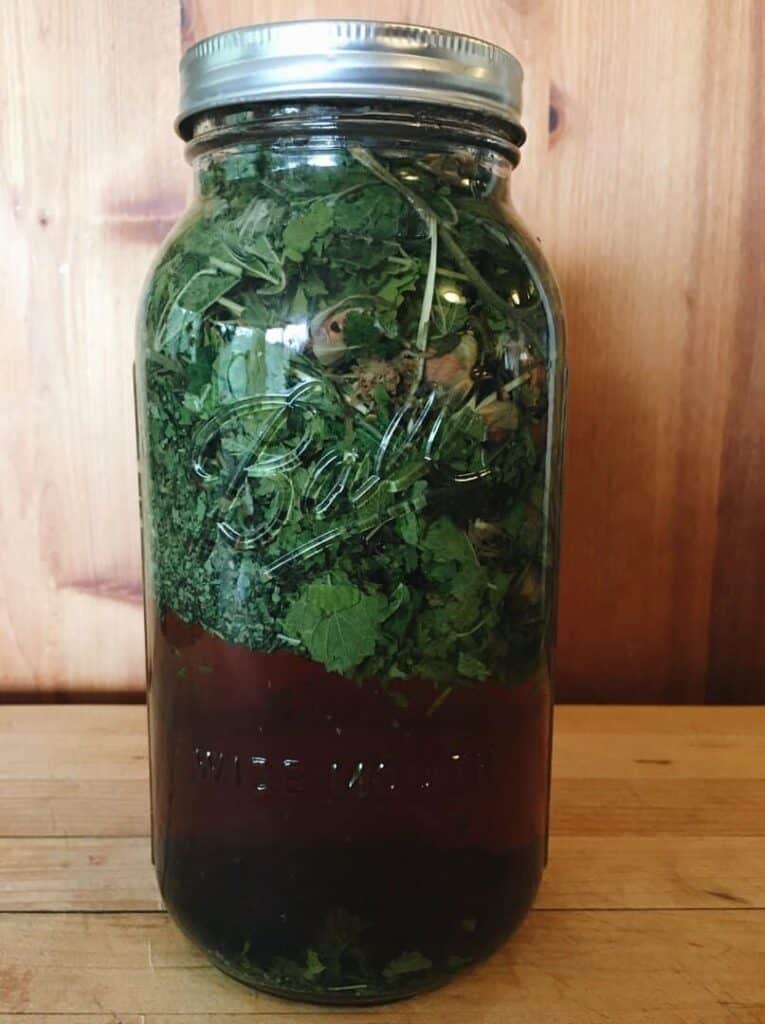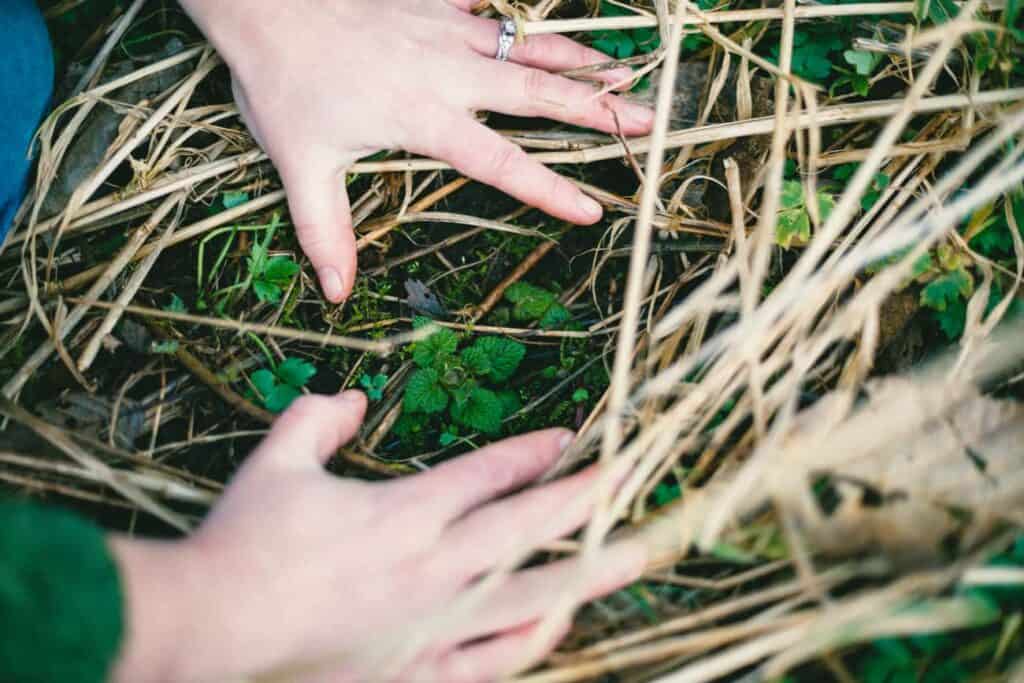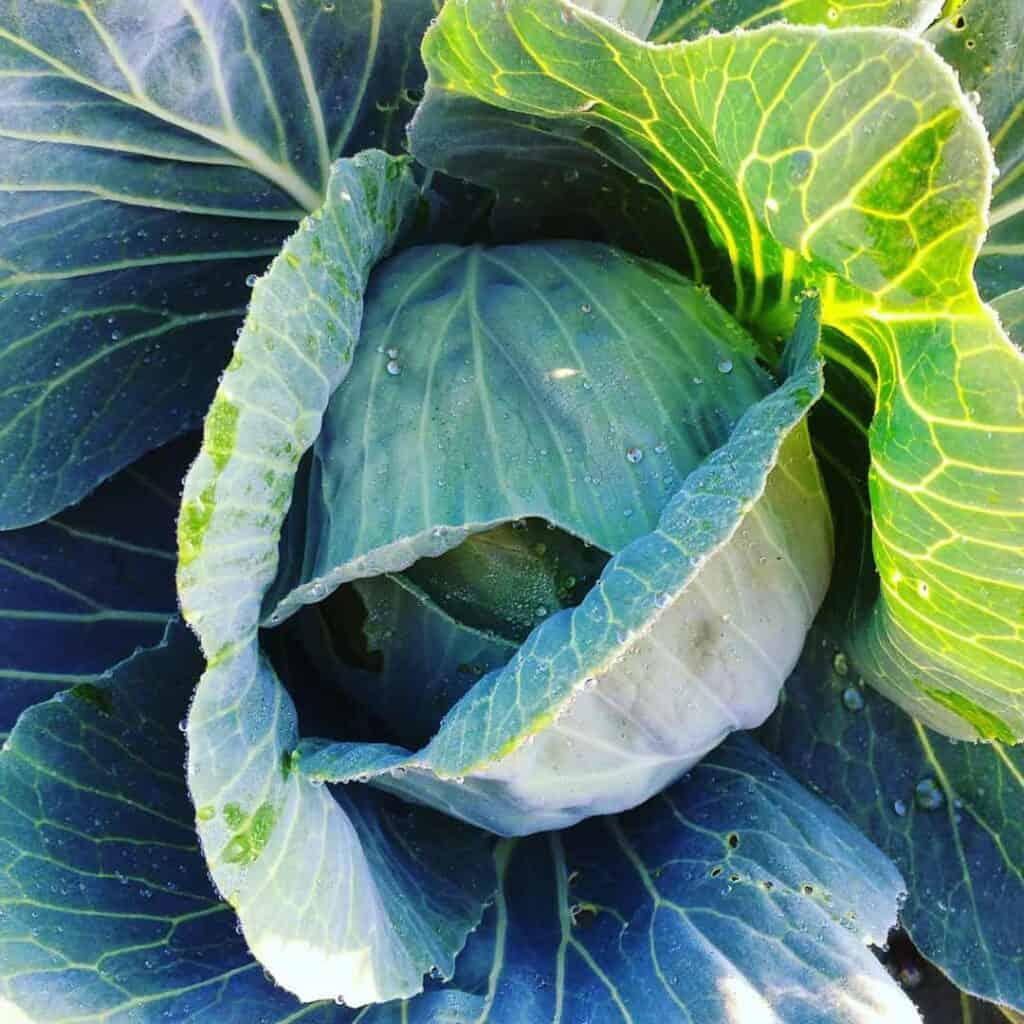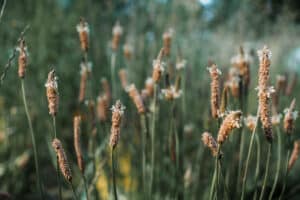Do you wish that you felt more vitality? So many people wait until they have time to take a vacation or staycation to recharge, but postponing self-care until you truly need it can leave you feeling burned out.
Instead of seeing self-care as an uphill battle, you can take small and achievable steps that enrich your day and make you feel great. In today’s blog post, I share simple yet life-changing self-care practices you can do that are rooted in the vitalist model of healing. This is not only about taking care of yourself, but aligning your daily and seasonal rhythms to the patterns of nature.
In today’s blog post, you’ll discover:
- How rising with the sun can influence your mood and mental health
- The correlation between your digestion and vitality
- What a simple walk in nature can do for your wellbeing
- The importance of rest and how to budget it into your day
- Best practices for embracing the changing seasons
Table of Contents

It seems these days that in order to take care of yourself, you need to read a new self-care book, take on a strict regimen, or buy an expensive product. However, this approach often ends up burning a hole in your pocket and leaving you feeling unfulfilled. Self-care shouldn’t feel draining, in fact it should be the opposite!
When I learned about vitalism, it transformed my life personally and as an herbalist. Although there are many ways it has impacted me, today I want to speak about the beneficial impacts that living a vitalist lifestyle has made for me.
To live a life aligned with vitalism, you don’t need to purchase anything new, novel, or exciting. At its heart, vitalism is about learning to live in harmony with nature—inside yourself and out. Over time I began to adopt more and more self-care practices rooted in the vitalist paradigm, and today I want to share five of them with you.
Through these five simple self-care practices, you can deepen your connection with yourself, find greater inner peace, and build a well of resilience that carries you through life challenges. While some of these practices may have felt easier to do when we were living closer to nature, they are just as possible today—albeit with some changes to accommodate where you live! Whether you live in a high-rise building in the city or a cabin along the river, these accessible self-care practices are for everyone.

Rise With the Sun
There is something about waking up each day when the sun is rising that syncs you up with the natural world. This small window of time, while most people lay asleep, is quite revitalizing. Basking in the energy of the dawn rejuvenates and recalibrates the spirit. Whether you choose to pray, meditate, read a book, or sit in silence, this golden window of time sets you up for a successful day by syncing you into the rhythm of daytime. This means getting up while it’s still dark to allow your body’s organ systems to “rise” as the sun’s light comes to the Earth.
Of course, waking up with the sun is easier said than done! On some summer nights, the sun may rise as early as 4 am, and you simply may not have the capacity to wake up so early. That said, start slow and dabble with setting your alarm clock a little earlier each day to match the sunrise. If you are able to sit outside, look to the east and take in those moments of the first light coming and begin your day slowly, charging your day with intention and gratitude.
Some cultures say that this is one of the best ways to prevent various aches, pain, and stiffness in the joints and muscles. If you are laying in bed while all that energy is moving outside in nature, it gets stuck in your joints and makes you achy. So if you tend to feel a little tight and immobile, try simply rising early and see if it helps. As someone that’s suffered from chronic pain for years, I’ve noticed it makes a huge difference.
Kindle a Strong Digestive System
The digestive system is known as the roots of the vital tree in numerous healing traditions because how your body digests, assimilates and eliminates food impacts everything. From anxiety and depression, to energy levels and lymphatic health, your digestive system is at the control seat.
One way you can strengthen your digestive system is by eating a constitutionally appropriate diet and warming your belly in the morning with Ginger (Zingiber officinale) tea, miso soup, or your favorite herbal infusion. Don’t skip meals, and aim to eat enough food to match your daily energy or expenditure level. If you work an office desk, you may need to consume a different amount of food than someone who works in construction. Consider how many meals you need to eat to feel well and start there.
Chinese medicine and Ayurveda state that there are times during the day when certain organs are more metabolically active. From this perspective, it is best to eat when your digestive system is strong and taper down your meals as it begins to subside. According to these traditional systems, it is best to eat the largest meal in the morning hours, a mid-sized meal during the day, and a smaller meal at dinner when your digestion begins to slow down in preparation for sleep. Timing your meals to match your body’s energetic capacity means flowing with the intelligence of your body and eating when it is best able to receive nourishment.
Eating a large breakfast and a small dinner is quite contradictory to the American practice of eating a small (or no) breakfast, a mid-sized lunch, and a large dinner. However, re-adjusting your eating habits to suit your body’s metabolic “schedule” can lead to significant improvements in digestion and energy.
That said, it is important to remain flexible and not become overly militant about eating disciplines. You may be hungrier on some days than others, and this can be due to many factors, such as stress, sleep, or simply how hard you are working! Remain flexible and go with the flow, being open to eating more on the days when you require energy and less on days when your expenditure is low. Enjoy your food, set the atmosphere, give thanks, and dig in.
Touch Grass
In today’s era, it is easy to stay cooped up indoors—especially if you work from home or have an office job. However, going out for a simple five to ten-minute walk each day can be truly life-changing.
Whether you live in a city with bustling traffic or by a quiet riverway, carve some time out each day to connect with the outside elements. On your walk, pay attention to the nature around you. What trees are growing, what weeds do you see, and are there any flowers that catch your eye?
If greenery is nowhere to be seen, connect to the simple elements. Feel the warm sun on your face, notice the cloud formations, and enjoy the wind as it brushes past you as you walk. Taking stock of the day in this fashion is immensely grounding and can root you back in your body, especially if you spend a lot of time on the computer or phone.
Aside from the importance of connecting with nature, movement is essential for your body. By combining your daily exercise with the outdoors, you meet two self-care needs central to the vitalist model of well-being: Time in nature and movement. Taking a walk doesn’t just move the body—it moves the spirit. If you are ever feeling stuck, stagnant, or melancholy, one of the best remedies you can take is a walk. A little time outdoors charges the spirit and dispels malaise. Try it yourself—aim to take a five to ten-minute walk after work and leave your phone at home. Notice how much calmer and grounded you feel when you return.

Rest
Today’s culture is obsessed with constant output and production. This not only puts stress on your body but on your mind and heart too. It can feel nearly sacrilegious to pause and do something simply because it is pleasurable, replenishing, or restful. However, slowing down to care for your body during an era of non-stop doing is precisely the medicine needed today.
Resting when you are tired is central to the vitalist model of health, after all feeling tired is a communication from the vital force to slow down. Although you may have been conditioned to think that taking a nap during the day is lazy or watching a movie in bed is frivolous, taking time to recharge is a radical act of self-love rooted in the vitalist model.
Nature moves slowly, and planting a seed in the evening does not yield a flower in the morning. The seasons too, are chapters of the year that crawl by. Although it may seem quick in retrospect, they take their time, day by day, to transition. When you remember that you are nature and your body reflects the cycles of nature, it makes sense that as humans we are supposed to move slowly too. Nature does not rush, and neither should you. Remember to pause, exhale, and rest.
Lastly, rest within the vitalism paradigm means going to sleep when you are tired! Although it is commonplace to drink a cup of coffee (or two or three) to keep you going when you are sleepy, living in accordance with the vital body means priming your body for sleep when you are tired instead of fighting it. That means decreasing your caffeine intake throughout the day, using gentle nervines, like Chamomile (Matricaria recutita), in the evening to settle down, and either dimming your lights or using an orange screen filter on your devices in the evening. Doing so supports your natural sleep cycle and primes you for rejuvenating sleep that will leave you replenished for the next day.
Embrace the Seasons
The title says it best: Embrace the seasons. You can do this by adjusting your lifestyle practices in accordance with the changing seasons. The four main ways you can accomplish this are by modifying your diet, herbal intake, sleep schedule, and cleansing routine.
For example, during the wintertime, it is best to eat a diet of steamed and cooked foods, such as stews and soups, to keep the body hydrated. Use warming spices, like Cinnamon (Cinnamomum verum) and Black Pepper (Piper nigrum), to move your blood and warm your periphery, and drink stimulating and circulatory infusions, such as Ginger (Zingiber officinale), to warm your core from the inside out. Alternatively, light and fresh foods like cucumbers and berries are better suited for summertime with raw salads and cooling herbs like Hibiscus (Hibiscus sabdariffa).
One of the most straightforward ways to adjust your diet is simply by eating locally or seasonally. While many modern grocery stores have all sorts of produce year-round despite the changing weather, eating seasonally helps your body adapt to the changing elements outside. Of course this is not always possible everywhere, as some places don’t have access to fresh foods etc., so it’s all about doing what you can.
Another way you can live following nature is by adjusting your sleeping and waking cycle. In the wintertime, the sun rises later and sets earlier in the day. You can calibrate your circadian rhythm by rising with the sun and setting aside your to-do list to prepare for sleep earlier in the day. In the summer, the sun rises much earlier and sets later. To adjust your sleep schedule and keep rising with the sun and going to bed when it gets dark (which tends to lead to really long days in some places), take an energizing mid-day nap or siesta (if needed) and go to sleep once it is dark outside.
Lastly, practicing modified fasting or cleansing protocols can help you transition throughout the different seasons and aid your body in the process of eliminating metabolic waste products or accumulated energetic patterns (like heat/cold, damp/dry). Before food became as readily available as it is today, people endured periods of feast and famine as the land itself transitioned to the colder months. Thankfully many places in the world no longer face food scarcity in ways that we used to, but that doesn’t mean that your body does not benefit from the occasional cleanse or fast. In fact, our biology is programmed to go through periods of fasting.
With convenience foods and late-night eateries delivering food at 2 am, it benefits the body to go through a fasting phase as it is during this time that the blood sugar regulates and the body is better able to rid toxins, especially the liver. Many modified fasting protocols work by simply taking a 12-16 hour period of time fasting, usually by skipping dinner or simply delaying breakfast. Ayurveda speaks extensively about the different types of fasting patterns and practices since different constitutions require different cleansing protocols. Someone with patterns of dryness will require a different approach to cleansing than someone with excess dampness.
When it comes to embracing the seasons, it is all about learning to move with the flow of nature instead of against it. Just as you would bundle up before leaving the house on a cold day, you would consume moistening and warming foods to hydrate and warm your inner body. By adjusting your dietary, herbal, sleep rhythm, and cleansing schedule to align with the seasons and the vital cycles of life you can experience improved physical, mental, and emotional health throughout the year.
The Tides of the River
Although our culture often focuses on cleansing, designating a time for rejuvenation is equally important since it solidifies the health benefits achieved during the cleansing period. Some ways you can find replenishment is by taking a vacation (or staycation), a hot bath at the end of the day, spending time with friends, or doing anything else that fills your cup.
Essential to the vitalism model is finding time for joy! You are not here on this planet to work yourself down to the bone. You are here to celebrate and relish in nature’s gifts, give back to the planet, and live a life of meaning. Take breaks to enjoy life, uplift your heart, and invigorate your mind.
Nature goes through periods of cleansing and rejuvenating. From the deciduous trees dropping their leaves in autumn and budding in the spring to the waxing and waning tides of the rivers, there is a chapter for everything. By living in accordance with these vitalist self-care practices, you can experience a deepened and more harmonious connection with the natural world around you. While many of them perhaps seem overly simplistic, they are actually very powerful, especially when done together, for through that we harmonize our entire being with the cycles, rhythms, and patterns of nature.










